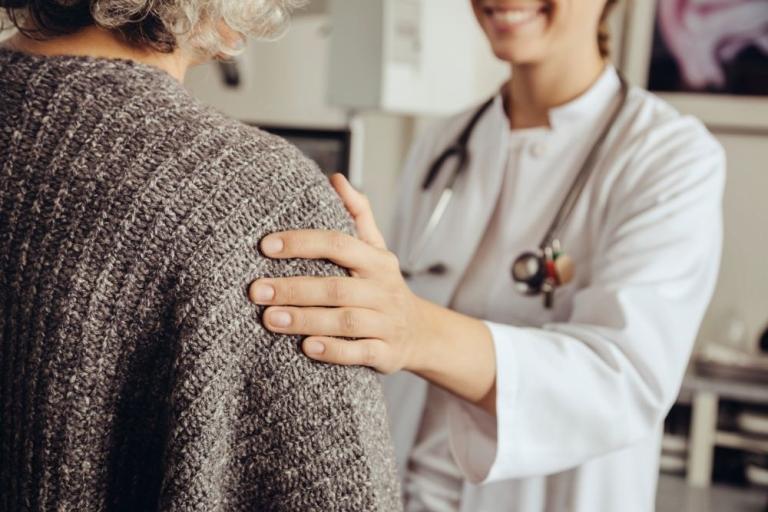Should I Get a Second Opinion?

Stock photo posed by models: Getty Images
If you’ve been newly diagnosed with cancer, you may be wondering if you should get a second opinion — or how to get one. Here’s what to know, and what you can do.
Don’t ever be afraid to get a second, or third, opinion. People see disease differently, as you would a painting. Everybody has a different image, and a different way of treating.
Hearing you have cancer can be shocking. It’s perfectly reasonable to want to begin treatment right away. However, taking your time can have advantages, including having the opportunity to seek other opinions about your treatment options, consider your treatment goals, and evaluate your options.
If you are newly diagnosed, one of the first things you can do is ask your doctor how much time you have to make a decision and begin treatment, Kim Thiboldeaux notes in our blog 10 Things You Should Do If You Are Diagnosed With Cancer.
“Our natural instinct is to take immediate action — to do something and do it now,” writes Kim, author of the book Your Cancer Roadmap: Navigating Life with Resilience. “In most cases, you have time to do more research, get a second opinion, and even consult with a decision counseling expert to discuss your options, personal goals, and wishes.”
Some patients may worry that they will offend their doctor or hurt their feelings if they get a second opinion. Patients may also worry that seeking another opinion might compromise their care. It’s important to remember that this is your experience and you do have choices.
Tip
Finding a doctor and cancer care team with the expertise to treat your cancer is important. But it’s also important to find a team with whom you feel comfortable and can talk openly about your questions and concerns regarding your diagnosis and treatment options.
“Patients should feel that getting a second opinion is the norm," shared Meg Gaines in our blog "When It's Time for a Second Opinion" (January 2016). "They should feel their physicians are inviting them to get that second opinion. If I had my way, every doctor would have a sign in the office that says, ‘Ask me about getting a second opinion.’”
After her own experience navigating ovarian cancer, Meg founded the Center for Patient Partnerships at the University of Wisconsin. She had been told her cancer was inoperable. However, she persisted and found a surgeon willing to do an experimental procedure. Meg tells her story — including how seeking another opinion impacted her cancer journey — in this 2017 TEDMED Talk.
Why Get a Second Opinion
There are many reasons why a person facing cancer would choose to get a second or even third opinion, or to change doctors or treatment facilities. For some people, getting another opinion provides assurance that they are receiving state-of-the-art care. That was important to Colleen and her husband after his cancer diagnosis.
“My husband was diagnosed with metastatic melanoma in our local community hospital,” shared Colleen. “He had a number of other health problems as well that made his case really complicated. We loved our doctors, but we also knew we had to get an opinion from the experts at a major cancer center.”
For anyone facing a serious medical condition, it’s very practical to consider getting another opinion. There are different types of oncologists with a wide range of abilities, communications styles, and areas of expertise.
Expertise was one important consideration in Courtney's decision-making process. Diagnosed with advanced melanoma, she sought a second opinion from an oncologist who specializes in skin cancer and melanomas. She opted to go with that doctor for her treatment.
So, seeking other opinions can be helpful. It doesn’t mean you don’t value your own doctor’s opinion. Talking with other doctors can help you better understand your cancer diagnosis and how to treat it. In some cases, a second opinion may confirm the opinion of the first doctor. In other cases, a second opinion can present different treatment options to consider.
How to Get a Second Opinion
Ask your oncologist if they can suggest someone you can see for a second opinion. You can also use these resources to support your search:
If you’d like to learn more about making informed treatment decisions, our treatment decision counseling program, Open to Options, can help. An Open to Options specialist can work with you to develop a list of questions and concerns to discuss with your doctor as you explore treatment options and what’s best for you.
Discover More About Open to Options
Editor's Note: This blog was originally published in 2016 and has been updated.